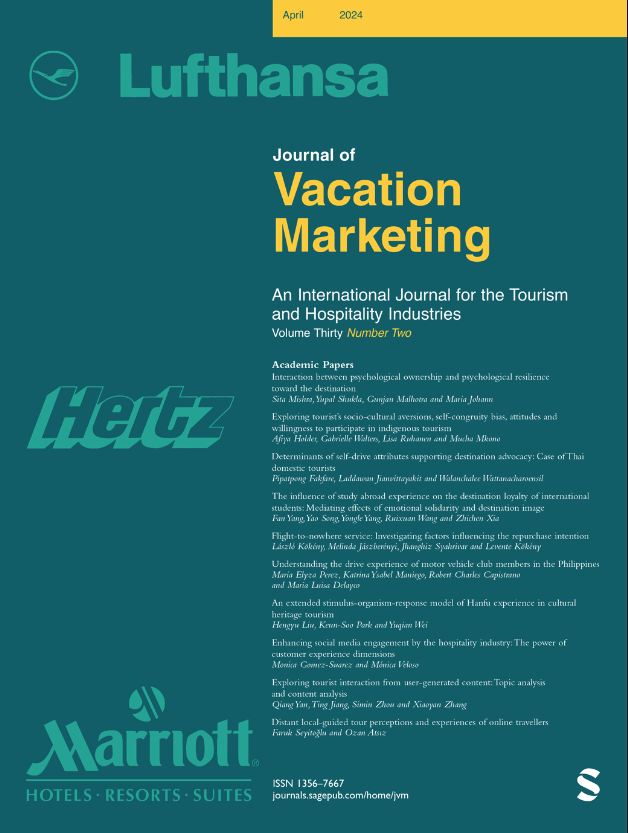What behavioral beliefs could robot-served hotels focus on to attract potential consumers?
IF 4.5
3区 管理学
Q1 BUSINESS
引用次数: 1
Abstract
Service robots could provide benefits for hotels in terms of productivity and even service quality. However, hotel managers in Spain (and Europe) have not implemented them as yet or are doing so only tentatively. This could be due to the fact that current literature is fragmented (i.e., dominated by hybrid models) and inconclusive and does not provide consistent guidelines for practitioners. This research narrows this gap by showing that a parsimonious application of the Theory of Planned Behavior is useful to predict attitude and buying intention toward robot-served hotels. Through an empirical analysis of 600 consumers in Spain, our findings indicate that hotel managers could focus on intrinsic motivations (enjoyment and challenge). They should also communicate the advantages of hybrid human–robot teams, in which the robots supplement humans instead of substituting them. The anthropomorphism of robots should not be emphasized as it seems to be perceived as a threat. Although utilitarian benefits matter, they seem to have a subordinate salience.机器人服务酒店应该关注哪些行为信念来吸引潜在消费者?
服务机器人可以为酒店提供生产力甚至服务质量方面的好处。然而,西班牙(和欧洲)的酒店经理还没有实施,或者只是暂时实施。这可能是因为当前的文献是零散的(即,由混合模型主导)和不确定的,并且没有为从业者提供一致的指导方针。这项研究缩小了这一差距,表明计划行为理论的简约应用有助于预测对机器人服务酒店的态度和购买意愿。通过对西班牙600名消费者的实证分析,我们的研究结果表明,酒店经理可以关注内在动机(享受和挑战)。他们还应该交流人-机器人混合团队的优势,在这种团队中,机器人补充而不是取代人类。机器人的拟人化不应被强调,因为它似乎被视为一种威胁。尽管功利利益很重要,但它们似乎具有从属的显著性。
本文章由计算机程序翻译,如有差异,请以英文原文为准。
求助全文
约1分钟内获得全文
求助全文
来源期刊

Journal of Vacation Marketing
Multiple-
CiteScore
9.70
自引率
15.70%
发文量
54
期刊介绍:
Journal of Vacation Marketing is a fully peer reviewed international journal that publishes original research and review articles on topics relating to the marketing of destinations and businesses/organisations involved in the wider tourism, hospitality and events industries. Its objective is to provide a forum for the publication of refereed academic papers and reviewed practitioner papers which are of direct relevance to industry, while meeting the highest standards of intellectual rigour.
 求助内容:
求助内容: 应助结果提醒方式:
应助结果提醒方式:


